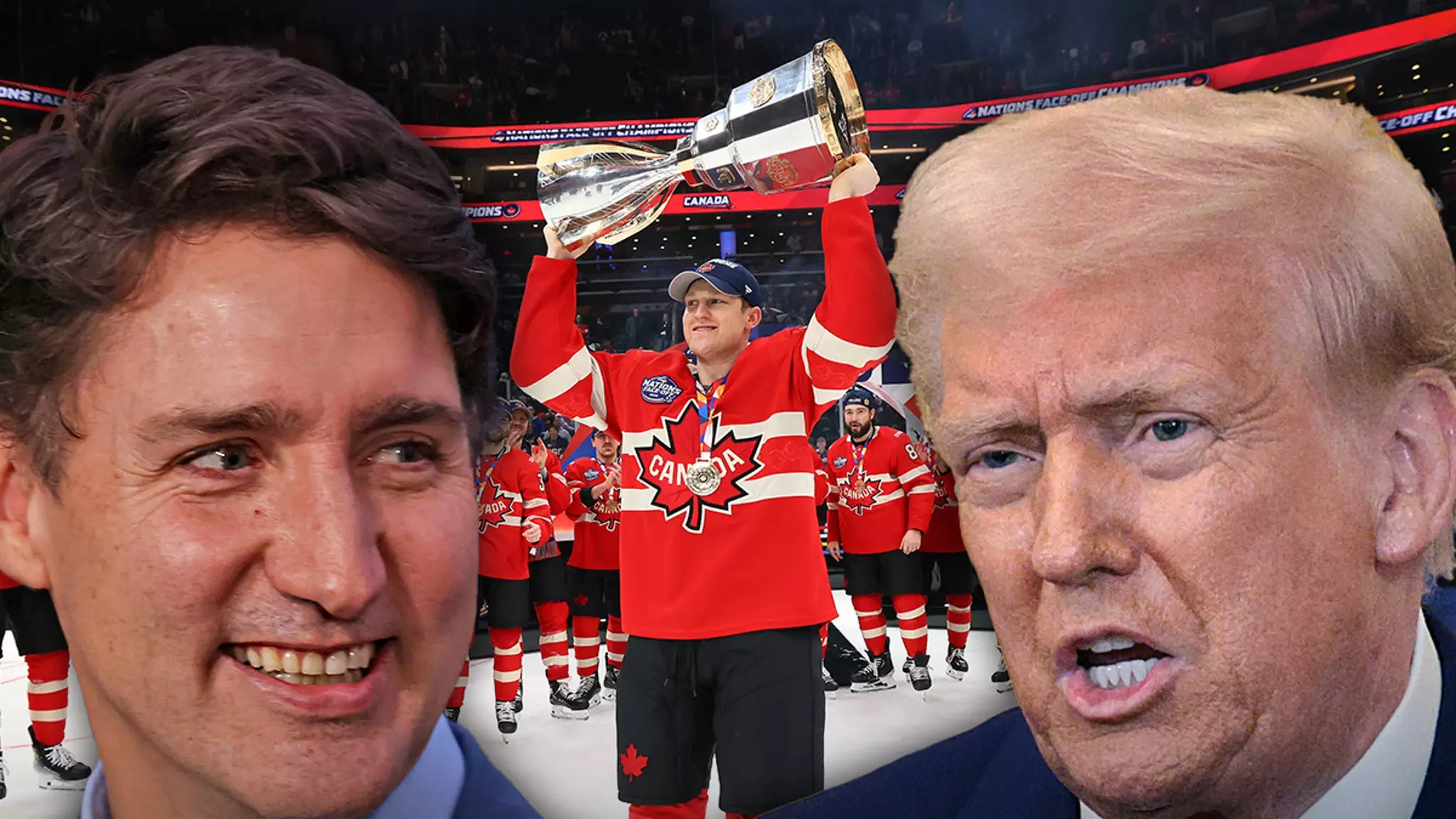On a night that many hockey enthusiasts won’t soon forget, Canadian Prime Minister Justin Trudeau relished a victory over the United States during the decisive match of the 2025 4 Nations Face-Off tournament. Connor McDavid, an emblem of Canadian hockey prowess, clinched the championship with an overtime goal, much to the dismay of American fans. Trudeau’s subsequent social media post—a cheeky jab at former President Trump’s past comments about annexing Canadian territory—echoed a sentiment that reverberated through both countries, encapsulating the fierce rivalry and the week of political and athletic tension that led to this thrilling finale.
This tournament, although a novel entry into the competitive hockey calendar, transformed into a major spectacle due to the existing strains between the U.S. and Canada. The stage was set from the get-go, with the Saturday evening matchup in Montreal marred by an unenthusiastic reception of the U.S. national anthem and hooligan-like skirmishes erupting on the ice almost immediately. When both teams faced off again in Boston, the American crowd returned the animosity by jeering “O Canada.” This exchange underscored the raw passion and competitiveness that characterize the rivalry between the two northern and southern neighbors.
Throughout the game, tempers flared, reflecting the underlying political climate. Canada temporarily took control with an early goal, igniting hopes for their fans. The Americans retaliated swiftly with two goals, only for Canada to fight back, balancing the score before McDavid’s dramatic winner. This back-and-forth intensity epitomized not just a game, but a cultural clash—a microcosm of the larger political landscape.
The solidarity felt by Canadian players was palpable as they celebrated their win. Hockey, more than a sport, becomes an emblem of national pride, especially when stakes are high, as expressed by Nathan MacKinnon’s observation that the rivalry was a “perfect storm” for the sport. In an age where international relationships can sour rapidly, moments like these offer both joy and reflection for fans on either side of the border. It’s fascinating how sports can serve as arenas where national identities clash, revealing deeper narratives about competition, pride, and even disdain.
With the Winter Olympics on the horizon, fans are left yearning for the next opportunity to witness this charged rivalry on ice. The outcome of the 4 Nations Face-Off tournament may linger in the hearts of American fans, who will undoubtedly seek vengeance against their neighbors. Yet, the political backdrop adds layers of complexity to the upcoming competitions, further entrenching this rivalry within a web of nationalistic pride and cultural identity.
In essence, Trudeau’s jibe post-victory is emblematic of a larger phenomenon wherein sports serve as both a battleground and a conduit for expressing national sentiments. As the rivalry evolves, it will be intriguing to observe how future encounters between these two hockey powers unfold, especially as they navigate an ever-changing political landscape.

Leave a Reply